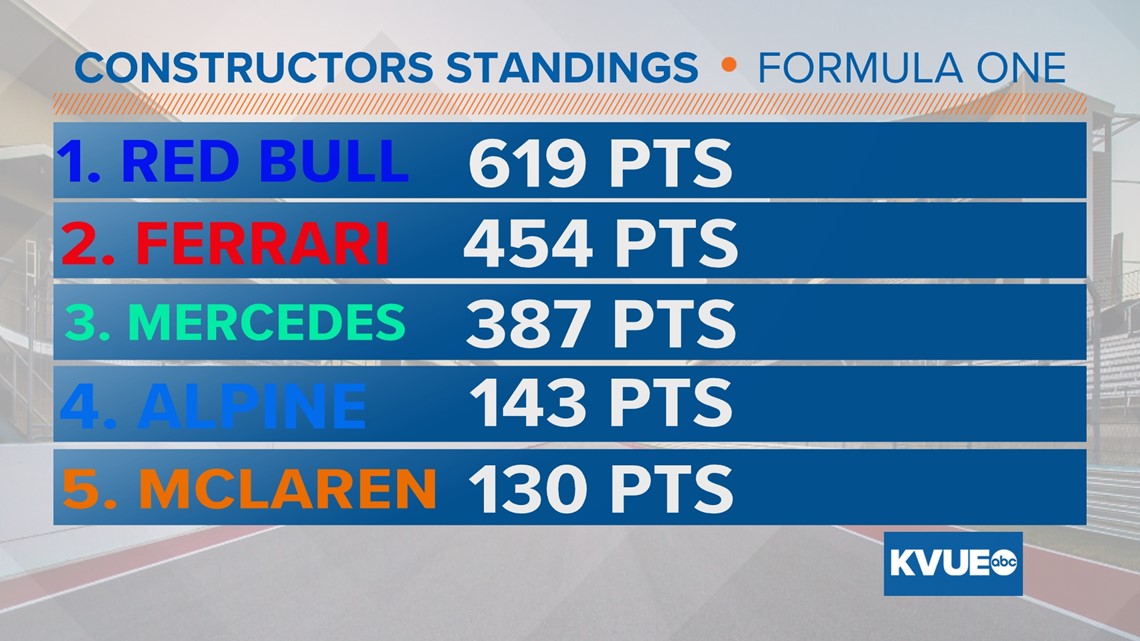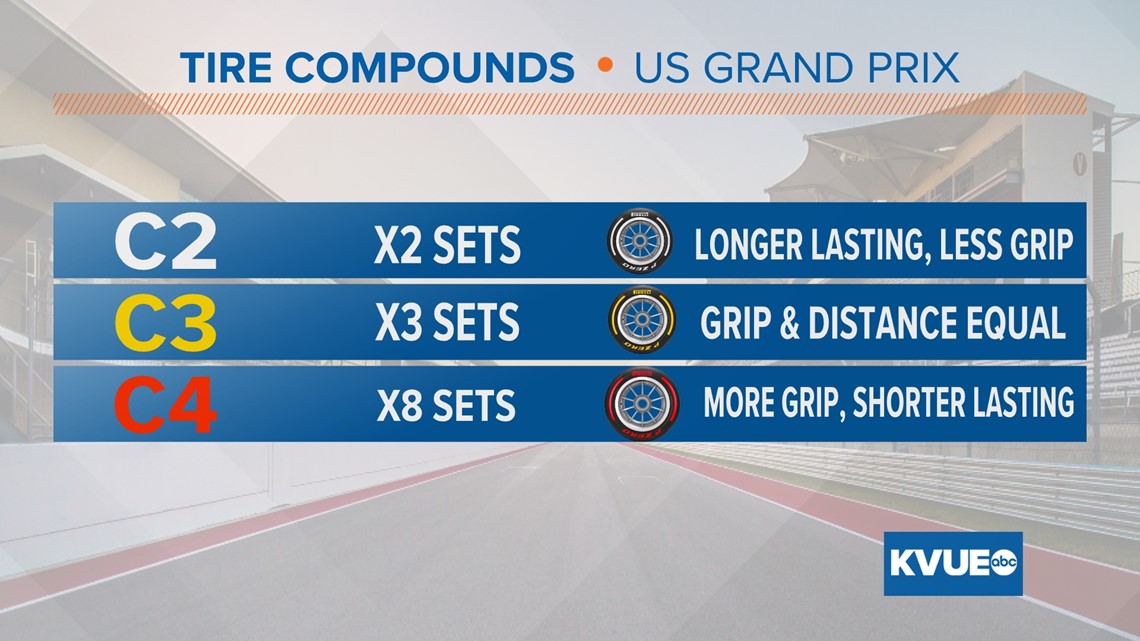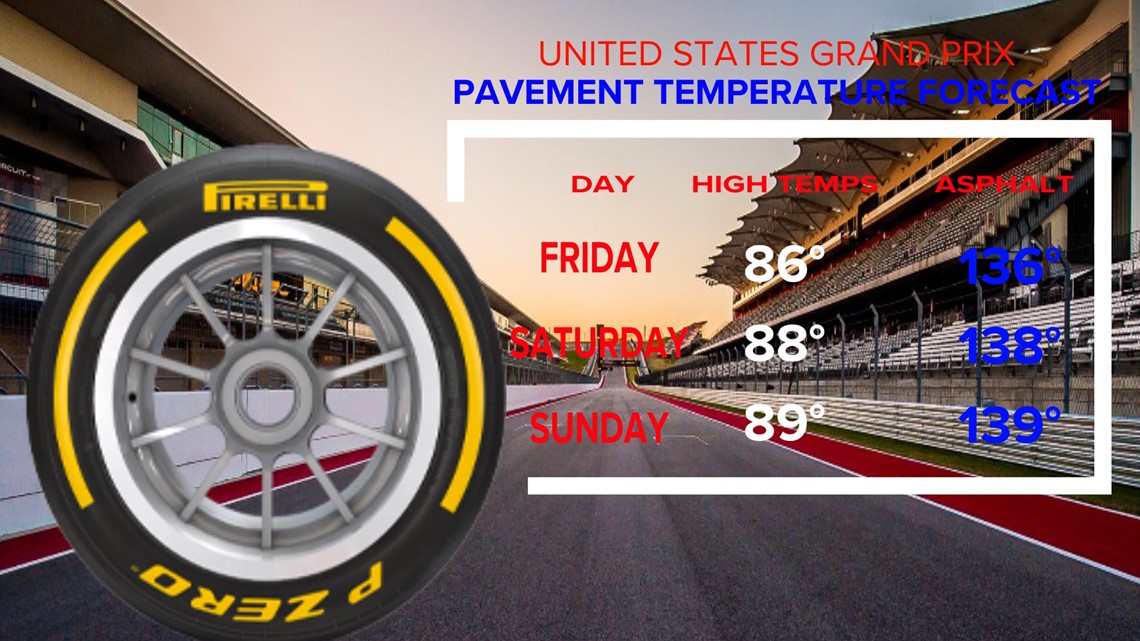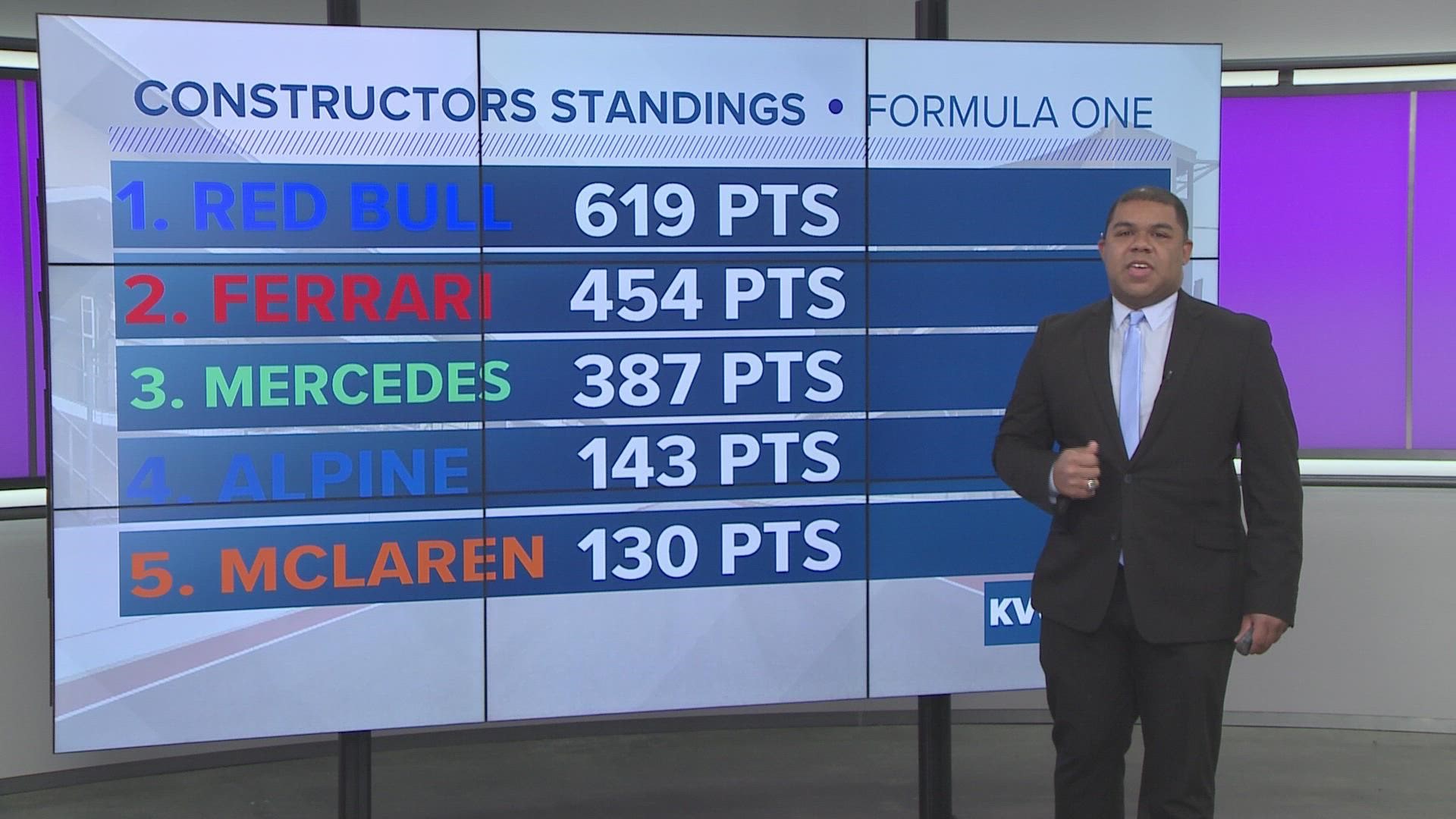AUSTIN, Texas — Once again, Formula 1 is making its latest pilgrimage to the Circuit of the Americas in Austin for the United States Grand Prix.
It's sure to be an exciting weekend of racing at the track, which opened in 2012 and also hosts events such as MotoGP and NASCAR.
With this in mind, tire strategy is an important piece of strategy in a Formula 1 race, and it separates great teams from the, well, not-so-good ones. For instance, teams that often make the best calls when dealing with tire strategies are the ones that have dominant cars throughout not only the race but throughout the weekend and the championship season.
For instance, Red Bull Racing currently leads the team standings with 619 points and has an opportunity to clinch the Constructor's title if they earn the maximum 44 points by having their two drivers Max Verstappen and Sergio Perez finish first and second, and one of them record the race's fastest lap, which carries a bonus point.
Ferrari, with Spanish driver Carlos Sainz and Monegasque driver Charles Leclerc, has struggled with its race strategy, but still finds itself in second with 454 points.
Mercedes, led by seven-time World Champion Lewis Hamilton and supported by rising F1 star George Russell, is hot on Ferrari's heels with 387 points. It's important to know that Mercedes has won each of the last eight Constructors' titles in a row, although it has been determined that they will not claim the title in 2022.


With this in mind, F1 tire manufacturer Pirelli has five different tire compounds that are provided to teams in a given race weekend. The compounds are marked C1, C2, C3, C4 and C5, with C1 being the hardest compound and C5 being the softest and mainly used on street circuits such as Monaco due to that track's extremely tight corners.
Of those five, only three compounds are designated for a race weekend. In COTA's case, the C2, C3, and C4 compounds will be used. The C2 compound has been designated the "hard" tire, highlighted in white, the C3 compound will be the yellow-highlighted "medium" tire, and the C4 compound will be the red-highlighted "soft" tire.


There are pros and cons to a harder compound compared to a softer one. With a harder compound, tires will have slightly less grip, especially on occasions where the track is especially smooth and asphalt temperatures are hotter.
With highs in the upper 80s throughout the race weekend, expect drivers and teams to opt for medium tire selections due to the added grip those tires provide without losing pace.
Some teams, if they feel that they may gain a lot of position over a short time, such as late in the race with a chance at a podium finish or even a race win, can opt for the softer tires to gain pace on opposing drivers. A perfect example of this happened at the Dutch Grand Prix at Circuit Zandvoort in the Netherlands, in which Russell made the call to switch to softer tires, which turned out to be a decision that would lead to a second-place finish behind race winner and eventual 2022 World Champion Verstappen.


With all of this in mind, weather can play such an important role in race strategy, especially when it comes to tire selection. Whoever pushes the right buttons in tire selection will have the best success on the track this weekend.
PEOPLE ARE ALSO READING:

